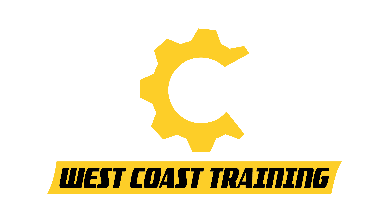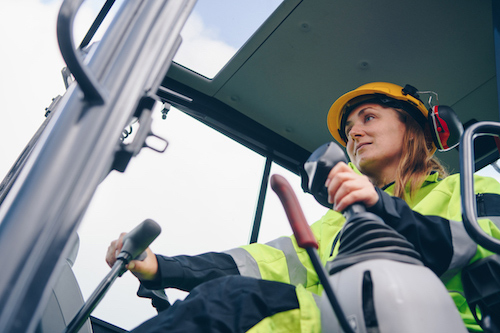
5 Things to Look for When Selecting a Construction Equipment School

While some heavy equipment operators get their start in the field itself, to set yourself up for success and secure a top paying position on a construction site of your choosing, it’s in your best interest to attend a construction equipment school.
Building roads, highways, bridges, buildings, airports, and new housing developments are just a few major projects that trained construction equipment operators could wind up performing. In addition, they are also indispensable for projects such as gas and oil pipelining, mining, damming, and wall building.
But before securing one of these many opportunities, workers must know how to operate machinery like cranes, backhoes, road graders, bulldozers, and asphalt spreaders, among others.
To ensure a safe working environment many construction equipment operation positions now require classroom education and real-time training. For this reason, it is in aspiring students’ interest to identify the best schools, such as West Coast Training, and earn a top-notch, hands-on experience before entering the workforce.
Here are five things to look for before choosing which construction equipment school to attend.
1. Balanced Learning
Before selecting a construction equipment school a potential student should look for a place that will provide a balance between in-classroom and hands-on training
A job can teach you many things, but foundational skills, advanced safety knowledge, and practical know-how taught from experts in the field is invaluable and will provide a massive head-start as you take your first steps into the industry.
Yes, it’s necessary to know how to operate the machinery and get lots of time practicing for real-life situations, but the knowledge gained in the classroom is also essential and will set you up for success to pass necessary certification exams and even make you more hireable when the time comes.
2. Course Structure and Details
Look over the courses provided at the schools you are interested in before you get started. At West Coast Training, students can complete each course offered in four to eight weeks, depending on the complexity.
In our heavy equipment operator course, you can expect to commit ten hours per day, five days per week, for eight weeks—a total of 400 learning hours. During this time you will be taught basic engineering concepts, workplace safety, applied mathematics, project layout, basic surveying, proper operating techniques, preventive maintenance, and hands-on training.
The NCCER Core Curriculum and Heavy Equipment Operators 1,2, and 3 are covered in this high-intensity course.
Looking for something a little different? We also offer an eight-week NCCCO Crane Operator & Rigger course, four-week Class A Commercial Driver Training, four-week NCCCO Mobile Crane Operator course, and various seminar and exam courses.
No matter which path you choose while attending West Coast Training, along with classroom instruction and theory there is a significant focus on field training and handling of machinery. We ensure students are not just sitting around watching, but are fully engaged during their time here.
Smaller classroom sizes also lead to a more dedicated and focused approach as we help guide our students to become the best construction equipment operators in the country.
3. Job Search Assistance
In this highly competitive job market, a trained construction equipment operator stands out like a beacon to prospective employers.
Employers are looking for operators who are safe, efficient, and well-trained from the word go. By attending West Coast Training, you will acquire the knowledge needed to start working from day one.
Heavy equipment operators work with massive pieces of machinery that are potentially dangerous in the wrong hands and there is no room for uncertainty and risk. An untrained operator is an investment that companies would rather not have to make, which makes certified individuals the best candidates.
However, just like any field, knowing the right people will help get you in the door and at West Coast Training, we help our students craft their resumes, prepare for interviews, and keep them abreast of companies who are hiring throughout the U.S.
While we cannot guarantee employment, if you are truly serious about gaining a great education and are ready to get started in the industry, we will do everything we can to help you secure a job upon graduating.
4. Pay Potential
As the saying goes, you get out what you put in, and you can expect greater financial security if you opt for training from a top school.
Heavy equipment operators in the U.S., with the requisite training and experience, earn between $30,000-$70,000 per year, with the median pay lying around $45,000. This is higher than an average pay of approximately $37,700 across all other vocations.
Most heavy equipment operators will also earn added benefits like health care, paid vacation, sick time, and retirement plans.
If you decide to complete construction equipment operator training at a school you can likely expect a higher salary right away. But, before signing up for a course, ask the admissions representative about the average salary for students upon graduation, as well as the average salary five-years out; then compare.
5. School Accreditation
West Coast Training is licensed by the State of Washington and is an Accredited Training Unit of the National Center for Construction Education and Research (NCCER). We also conform to the National Commission for the Certification of Crane Operators (NCCCO) guidelines.
These credentials are nationally recognized, meaning that a West Coast Training graduate is qualified for employment anywhere in the country and abroad. Financial assistance and veteran’s benefits are also available.
While the U.S. Bureau of Labor Statistics is forecasting higher job growth in the construction and heavy equipment industry, there is also a significant focus on acquiring trained employees.
Attending a top, heavy equipment school like West Coast Training is the ideal way to start a long and successful career in the industry.
